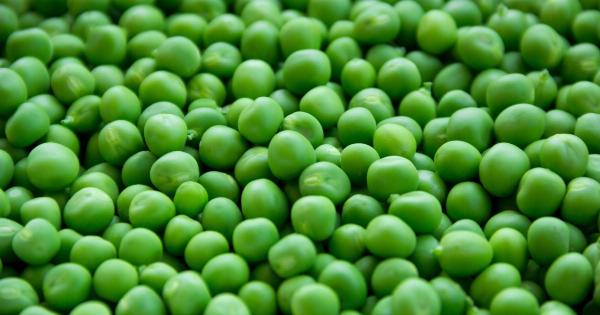When it comes to consuming vegetables, there are two main ways to prepare them: raw and cooked.
Each method has its own benefits and drawbacks, so which one is the best? The answer is not as simple as you might think, and it ultimately depends on the specific vegetable and your personal preferences. In this article, we will take a closer look at the benefits and drawbacks of raw and cooked vegetables and help you decide which method is best for you.
Raw Vegetables
Raw vegetables are those that are consumed uncooked, either on their own or in salads. They are typically crisp and crunchy and retain their natural flavor and nutrients.
Eating raw vegetables is a great way to increase your fiber intake and improve your digestion. Raw vegetables are also packed with vitamins and minerals, which are essential for good health.
One of the main benefits of eating raw vegetables is that they are highly nutritious. When you cook vegetables, you can lose up to 50% of their vitamins and minerals.
This is because cooking can break down the nutrients and make them less available to your body. Raw vegetables, on the other hand, retain all of their nutrients, which makes them a great choice for those who want to get the most out of their food.
In addition to their nutrient content, raw vegetables are also high in fiber. Fiber is important for maintaining good gut health and regulating blood sugar levels.
Eating raw vegetables can also help you feel fuller for longer, which can aid in weight loss and weight management.
Drawbacks of Eating Raw Vegetables
Despite the many benefits of eating raw vegetables, there are some drawbacks to consider as well. One of the main drawbacks is that some people find raw vegetables difficult to digest.
This is because raw vegetables contain enzymes and other compounds that can be hard on the digestive system. If you have a sensitive stomach or digestive issues, you may find that eating raw vegetables causes gas, bloating, or discomfort.
Another potential drawback of eating raw vegetables is the risk of foodborne illness. Raw vegetables can harbor harmful bacteria, such as E. coli and Salmonella, which can cause food poisoning.
To minimize the risk of foodborne illness, it is important to wash your vegetables thoroughly before eating them and to avoid consuming raw vegetables that have been sitting out for long periods of time.
Cooked Vegetables
Cooked vegetables, on the other hand, are those that have been heated before consumption. There are many different ways to cook vegetables, including boiling, steaming, roasting, and stir-frying.
When you cook vegetables, you can change their texture, flavor, and nutritional profile. Some vegetables taste better when cooked, while others are best consumed raw.
Cooking vegetables can make them more palatable and easier to digest for some people. Heating vegetables can break down the tough fibers that can be difficult to digest, which can make them more enjoyable to eat.
Cooking vegetables can also make them more flavorful, especially when they are seasoned with herbs, spices, or sauces.
Benefits of Eating Cooked Vegetables
There are many benefits to eating cooked vegetables as well. One of the main benefits is that cooking can increase the availability of certain nutrients.
For example, cooking can increase the amount of beta-carotene in carrots, which is important for good vision and skin health. Cooking can also increase the amount of lycopene in tomatoes, which is a powerful antioxidant that can help protect against cancer and heart disease.
Another benefit of eating cooked vegetables is that they can be easier to digest for some people. Cooking can break down the tough fibers in vegetables, which can make them more digestible for those with sensitive stomachs or digestive issues.
Cooking can also kill harmful bacteria, which can reduce the risk of foodborne illnesses.
Drawbacks of Eating Cooked Vegetables
Despite the benefits of cooking vegetables, there are some drawbacks to consider as well. One of the main drawbacks is that cooking can destroy some of the nutrients in vegetables.
As mentioned earlier, cooking can break down vitamins and minerals, which can make them less available to your body. Overcooking vegetables can also cause them to lose their texture and flavor, which can make them less appealing to eat.
Cooking vegetables can also lead to the formation of harmful compounds, such as acrylamide and heterocyclic amines. These compounds can form when vegetables are cooked at high temperatures, such as when they are fried or grilled.
Consuming these compounds in high amounts has been linked to an increased risk of cancer.
Conclusion
So, which method is best: raw or cooked? The truth is that there is no one-size-fits-all answer. It ultimately depends on the specific vegetable and your personal preferences.
Some vegetables are best consumed raw, while others are more nutritious when cooked. Some people find raw vegetables difficult to digest, while others experience discomfort from consuming cooked vegetables.
The key is to experiment with both raw and cooked vegetables and find what works best for you. Mix things up by eating a variety of raw and cooked vegetables throughout the week.
This will ensure that you are getting a wide range of nutrients and preventing boredom with your meals.






























